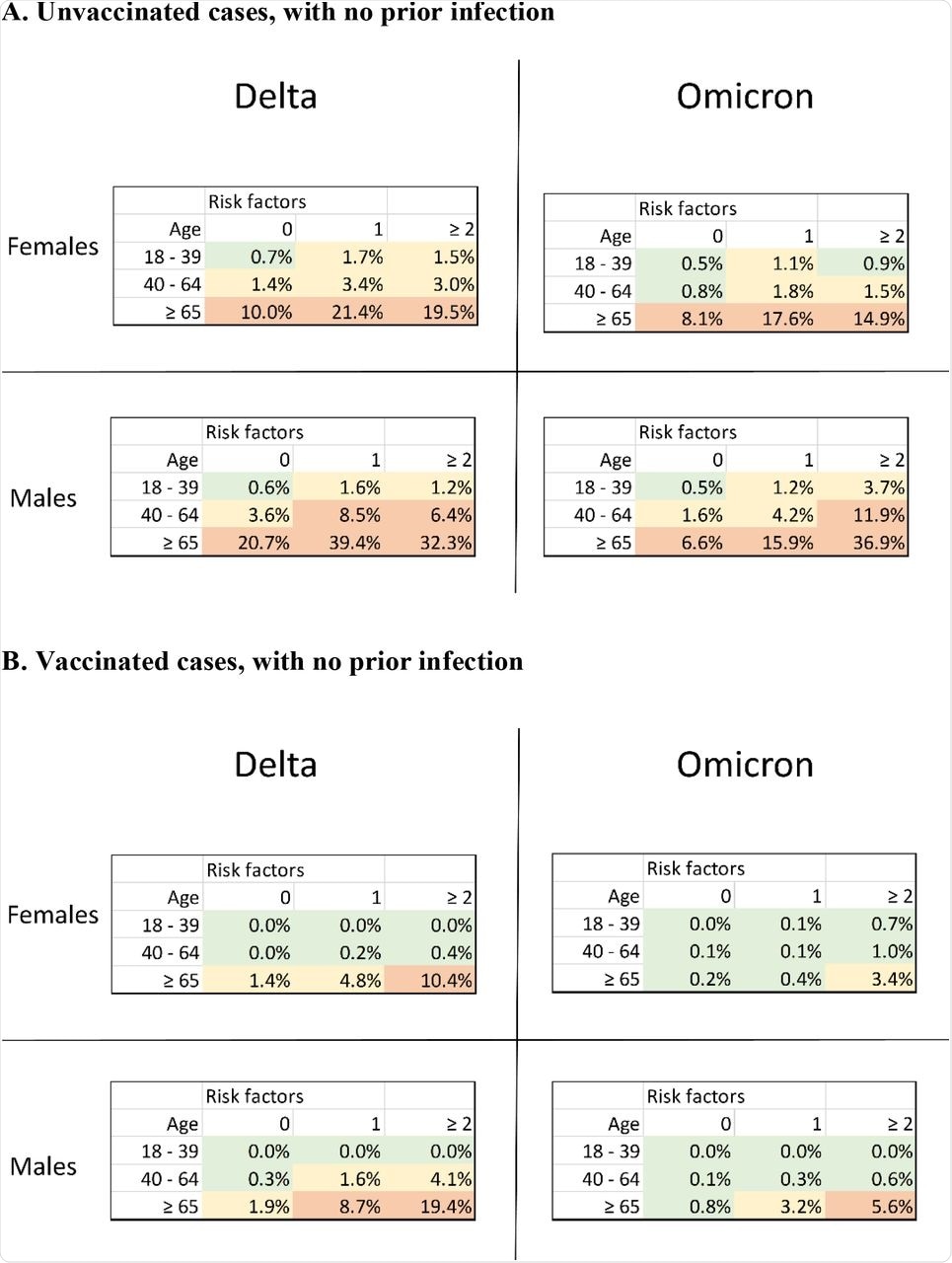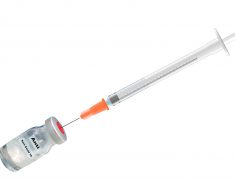On November 24, 2021, the severe acute respiratory syndrome coronavirus 2 (SARS-CoV-2) Omicron (B.1.1.529) variant of concern (VOC) was first detected in South Africa and has since spread throughout most nations around the world.

Study: Risk of severe COVID-19 from the Delta and Omicron variants in relation to vaccination status, sex, age and comorbidities – surveillance results from southern Sweden. Image Credit: Grafithink / Shutterstock.com
Background
When comparing secondary attack rates within Danish households, vaccinated people were found to be less protected against infection with the Omicron variant as compared to when the SARS-CoV-2 Delta variant was the infecting strain. Using a test-negative methodology, a Canadian study also discovered that two vaccination doses failed to protect against Omicron infection, whereas a third dose provided some rapid protection that was still much less than the protection these vaccines elicited against the Delta variant.
However, research suggests that current coronavirus disease 2019 (COVID-19) vaccines still provide strong protection against severe Omicron illness. In a Danish cohort study of infected people, both vaccinated and unvaccinated people had a significantly reduced risk of hospitalization with Omicron infection than with Delta infection. The small number of infections in older age groups, particularly among the unvaccinated, was one limitation of this study.
Further research into how dangerous the Omicron variant is to unvaccinated people, the elderly, and people with underlying illnesses are needed. In the current study published on the medRxiv* preprint server, researchers from Lund University evaluate the risk of severe Omicron infections in several risk categories defined by sex, age, comorbidities, and vaccination status.
About the study
Throughout the study period, a total of 55,269 COVID-19 cases were identified, of which 437 were considered to be severe. In order to determine the impact of the Omicron variant surpassing the Delta variant as the dominant strain on the occurrence of severe illness, logistic regression was used.
Age, sex, comorbidities, and prior infection were all considered, as well as booster dose and time since the last dose was received among the vaccinated.
Study findings
During the Omicron dominant period, the probabilities of severe COVID-19 were 40% lower among unvaccinated people and 71% lower among vaccinated people than during the Delta period. The risk of severe COVID-19 also remained high among unvaccinated, first-time infected cases of both sexes who were over the age of 65, as well as among males between the ages of 40-64 years with two or more comorbidities.
Even in the presence of comorbidities, the probability of severe COVID-19 among vaccinated individuals under the age of 65 years was low for both sexes during the Omicron dominant period. Only in the presence of at least one or two comorbidities did vaccinated subjects over the age of 65 continue to have elevated risks for severe COVID-19 during the Omicron dominant period.
The authors utilized conditional logistic regression and continuous density case-control sampling nested within the research cohort to evaluate vaccination efficacy (VE) against infection and severe COVID-19. A person with a first-time positive test or any positive test at least 90 days after a prior positive test was considered a case. For each case, ten controls were chosen at random from the underlying study cohort, matched for sex and age, who had not received a positive test the same week as the case or 90 days earlier.

Risks of severe COVID-19 disease among A. unvaccinated, B. vaccinated cases with no prior infection during the Delta (2021 week 27-47) and Omicron period (2021 week 52-2022 week 1), stratified by sex, age and number of risk factors (comorbidities). Green represents risk < 1.0%, yellow 1.0 – 4.9%, orange ≥ 5.0%.
During the Delta dominant period, the median weekly VE against infection was 67%; however, this protection began to decline after week 43 of 2021. The last week of the transition phase from Delta to Omicron dominance reported a more significant reduction in VE against infection.
By the end of the follow-up period, which is when Omicron became the dominant circulating strain, no vaccination protection against infection remained. VE against severe COVID-19 was calculated weekly and remained consistent at nearly 90% during the follow-up period, regardless of which VOC was dominant.
Implications
The current study found significantly lower rates of serious disease among the vaccinated when the Omicron VOC was the dominant circulating strain. As a result, VE remained high; however, its nature changed from Delta's protection against infection and severe disease to Omicron's protection solely against severe disease.
During the Omicron-dominant period, the risk of serious disease was also lower for unvaccinated people but remained high among the elderly and middle-aged males with comorbidities. Taken together, the results of the current study demonstrate that Omicron remains a serious public health risk in countries, populations, and subgroups where immunization rates are low.
*Important notice
medRxiv publishes preliminary scientific reports that are not peer-reviewed and, therefore, should not be regarded as conclusive, guide clinical practice/health-related behavior, or treated as established information.
- Kahn, F., Bonander, C., Moghaddasi, M., et al. (2022). Risk of severe COVID-19 from the Delta and Omicron variants in relation to vaccination status, sex, age and comorbidities – surveillance results from southern Sweden. medRxiv. doi:10.1101/2022.02.03.22270389. https://www.medrxiv.org/content/10.1101/2022.02.03.22270389v1.
Posted in: Medical Science News | Medical Research News | Disease/Infection News
Tags: Coronavirus, Coronavirus Disease COVID-19, covid-19, Efficacy, Immunization, Omicron, Public Health, Research, Respiratory, SARS, SARS-CoV-2, Severe Acute Respiratory, Severe Acute Respiratory Syndrome, Syndrome, Vaccine
.jpg)
Written by
Colin Lightfoot
Colin graduated from the University of Chester with a B.Sc. in Biomedical Science in 2020. Since completing his undergraduate degree, he worked for NHS England as an Associate Practitioner, responsible for testing inpatients for COVID-19 on admission.
Source: Read Full Article





